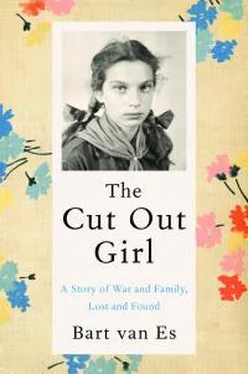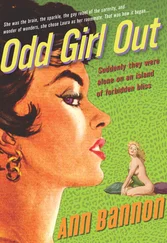—
MEANWHILE, IN DORDRECHT, the Heromas continued to ferry, to care for, and to hide Jews of all ages, although they were increasingly fearful that their activities were being tracked. Once, Jan Heroma headed out to look after a sick Jewish woman in hiding who, in spite of his best efforts, died of natural causes after several hours. As there was no way to remove her body without its being noticed, he dug a secret grave for her in the back garden under cover of night. In another case, he and Took rushed out to a house that had been hit by Allied bombing, aware that a Jewish couple was hidden inside. They guided the couple back to the Dubbeldamseweg, where they hid them in the cellar. After this, Jan went out in his little car to fetch the bombed-out couple’s daughter, who had been taken to a farmhouse far away. At first the girl, long separated, did not recognize her mother. Then, when she suddenly did, her delighted screams of recognition brought terror of discovery to the house.
For months all went well, but then one night there was a knock at the door. A group of policemen stood waiting outside. In the dead of night, with Jews still hidden in the cellar, Jan Heroma was led away to prison and an uncertain fate.
—
DURING MY TIME IN DORDRECHT I visit many places, but it is only toward dusk on the final day, just before taking the train back to The Hague, that I head to the Bilderdijkstraat to see the address where Lien first arrived in the town. It is a ten-minute walk from the station, so I go there trundling my suitcase, first through the park in the weakening sunshine and then along the broad pavements of a suburban trunk road that is beginning to fill with commuter traffic.
The Bilderdijkstraat itself is narrow and rather gloomy. For the first fifty yards both sides of the street have high, gray panel fencing that is faded and marked by graffiti tags. After this, on the left, it opens out onto an urban playground filled with the smooth-edged concrete of bicycle and skateboard ramps. I come to a halt and look out at the empty swings and slides, which are of a high-quality polished metal that makes them look like abstract works of art. A few trees grow on little islands of gray soil surrounded by asphalt, but there is no grass. About half a dozen teenage boys of North African appearance sit chatting, perched on the seats of their bikes. Across the way, a corner shop advertises cheap international dialing and halal meats.
Since the 1970s the Netherlands has become a country of immigration. One fifth of the population was either born outside the borders or are the children of those who were. Integration, especially among the two million that are of non-Western origin, has, on the whole, been only moderately successful, and that feeling of isolation is evident on this street.
Looking for number 10, I begin scanning the doorways, my suitcase clunking on the pavement slabs. Toward the end of the road there is a block of new terraced housing, different from the low-rise brick tenements that surround it. Some of this is occupied, but other parts have steel grilles over the windows that seem to have been there for a good while. The new build has confused the number system, so I end up walking along the same stretch of pavement again and again. While the boys on bicycles are in no way threatening, they regard me with increasing interest as an oddity, as well they might.
By the time I decide that number 10 stood on what is now the playground, the sun is casting long shadows across the street. I reach for my phone and take a few pictures, first of the concrete skateboard ramp with the spindly trees around it and then of the row of houses that stands opposite. The entire terrace is a single flat-roofed unit. It is as if its long front wall was rolled in some factory and then had windows and doors punched out of it by an enormous machine.
As I return the phone to my pocket, a door opens and a middle-aged man in a kameez comes toward me asking suspiciously, with a heavy accent, what I am doing. Meanwhile, the boys on bicycles begin to hover round. Faced with their questions I am suddenly evasive, explaining in a vague manner that I am conducting research about the Second World War.
Why is it that I do not tell this man about Lien as I did at the Pletterijstraat? I have done so at addresses across Dordrecht, where I have sat happily chatting in people’s front rooms over the last few days. Why do I feel guilty here?
It is because I sense a distance between us. It is because I assume that Jewish history will not be welcome in this place.
“You ought not to be spying on people,” the man tells me, and as he says this I suddenly see myself from the outside, with my wheeled suitcase and my phone camera, and my scuffed, expensive, brown leather shoes. Perhaps if I had told the full story this might have forged a connection? Instead, we retreat away from each other, equally nervous, and I head out again toward the commuter traffic on the main road where the cars have now switched on their lights.
Walking back to the station, I am reminded of the obvious fact that the Muslim community, in terms of the hatred directed toward them, is probably closer to the Jews of the previous century than any other. There are no easy parallels, but all the same, the language of Geert Wilders (whose Party for Freedom has hit 15 percent in national elections) has an air of the 1930s to it. According to Wilders there should be a ban on the Koran and on the building of mosques. He has called the Prophet Mohammad a “pedophile” and he calls Islam “evil.” He has spoken of the threat of an “Islamic invasion” and wants no more Muslims to enter the country at all. He has even demanded the abolition of Article 1 of the Dutch Constitution, which outlaws discrimination on the grounds of religion. It is hardly surprising, given this background, that the inhabitants of the Bilderdijkstraat should feel suspicious. All the worse, then, that I came here trundling a suitcase, pointing a camera, only to look and not to tell.
Five
Everything is different. The family in the Bilderdijkstraat in Dordrecht have a mooie kamer , a room at the front of the house that is kept for special occasions and for the rest of the time stays unused, cool and dark. After a few months of staying there Lien gets very ill with suspected tuberculosis, and she lies there on the sofa for days on end, watching the light of the day brighten and fade through the curtains, waves of cold and heat shaking her frame. “Auntie,” as she is told to call the mother of the new household, brings clear soup in a teacup with a piece of toast that cuts when it touches her throat. Auntie washes Lien’s face with a damp towel and helps her to sit up. The room, like the rest of the tiny single-story apartment, is sparsely furnished, with just two chairs facing the sofa on which she lies. Beside the unlit coal burner there is one precious object: a cabinet of dark polished wood with a china teapot and matching cups set out on top. The cups, which are never used, are pure white inside and they gleam even when the curtains are closed. If she picks one up and holds it to her eye, ever so gently, she can see her reflection in it. The curved sides of the cup bend the walls of the room so that they surround her like a burrow.
When you are ill the whole world exists at a distance. She senses movement outside on the street through the curtains and the front windows: men calling in the Dordt accent, so different from her own. At the end of nearly every sentence they say “hey.” As the children arrive from school there is noise from the adjoining kitchen: voices, a chair scraping, a tap running. “Be quiet! Lien is asleep next door, hey!” The kitchen is where the house comes to life. Mothers and children enter without knocking from the back of the house, bringing friends and news. Auntie’s voice is the loudest. “Do you know what they are charging for mincemeat at the butcher’s?” “Nell is getting her meat straight from the farm, Kokkie told me, hey?” Movement here is rougher than it was in Lien’s old house. There is banging of pots and cutlery and if Kees behaves badly his father will give him a whack on the arm. But everyone is welcome, the neighbors are friends, and there are always new voices at the dinner table. The men talk of workers’ rights and of the bosses at the factory with a sense of confidence and strength. A strong smell of cigarettes pushes its way into the silence of the front room.
Читать дальше












